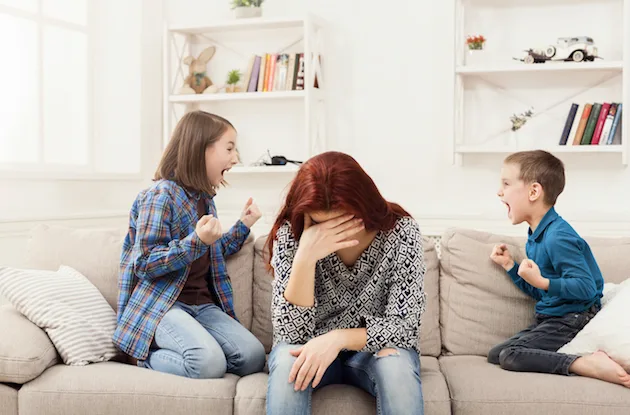Think twice before skipping over Uncle Charlie or your occasionally annoying neighbor when doling out party invites. Dr. Susan Bartell, a noted child psychologist, reminds us that this holiday season, we should give our children and ourselves the gift of really forgiving others their faults.
For many people, the holiday season is more stressful than fun. We must attend awkward reunions with rarely seen family and friends, for instance. Or even worse, we find ourselves with family members with whom we are not on good terms. In addition, when we are entertaining at home, there are stressful decisions to be made about who to include on a guest list and who to leave off. Then, after each gathering are the inevitable discussions about how angry or upset someone is about someone else’s behavior.
 Of course, although unpleasant or stressful, these are expected and normal experiences and feelings that are usually the result of years of complex relationships. When children, however, observe the “inclusion or exclusion dance” of adulthood, they don’t understand the history that caused us to arrive at our now frustrated, sad, or angry feelings towards some of the people in our lives; kids don’t get the gray areas. You may not realize it, but children hear—and listen carefully to—adults discussing who they don’t like, who they would rather not see, and who they’re not going to invite…until, generally, the invitation is sent anyway with many complaints. These overheard conversations convey a confusing but powerful message. This is because we spend a great deal of time talking to kids about including everyone, accepting that no one is perfect, and not talking behind peoples’ backs. But is this actually the way we behave? Do we practice what we preach?
Of course, although unpleasant or stressful, these are expected and normal experiences and feelings that are usually the result of years of complex relationships. When children, however, observe the “inclusion or exclusion dance” of adulthood, they don’t understand the history that caused us to arrive at our now frustrated, sad, or angry feelings towards some of the people in our lives; kids don’t get the gray areas. You may not realize it, but children hear—and listen carefully to—adults discussing who they don’t like, who they would rather not see, and who they’re not going to invite…until, generally, the invitation is sent anyway with many complaints. These overheard conversations convey a confusing but powerful message. This is because we spend a great deal of time talking to kids about including everyone, accepting that no one is perfect, and not talking behind peoples’ backs. But is this actually the way we behave? Do we practice what we preach?
If you are willing to admit (even just to yourself) that you are more likely to tell your child how to behave towards others than to actually behave that way yourself, then the next few holiday tips are for you!
- Refrain from discussing other people when you are around your child. You may not be able to actually stop gossiping or complaining, but save it for times when your child is not anywhere within earshot.
- Give at least one person a second chance. If you’re considering not inviting someone to a holiday event, invite them anyway! Afterwards, you may wish you hadn’t invited them, but at least you won’t have to confront the hurt feelings or hostility from the person that would have resulted from you not inviting them. Sometimes not hurting feelings is reason enough to do something—isn’t that what we tell our kids?
- Focus on the positive. You may anticipate multiple reasons that you are not looking forward to seeing a particular person at a holiday event; however, focusing on just one or two positive aspects of this person will definitely help you get through the meeting. So dig deep and look for the good in everyone, and encourage your child to do the same!
Dr. Susan Bartell is a Long Island-based, nationally recognized child psychologist, speaker, and award-winning author. Her latest book is The Top 50 Questions Kids Ask. Read more of Dr. Bartell’s advice at nymetroparents.com/bartell.





















